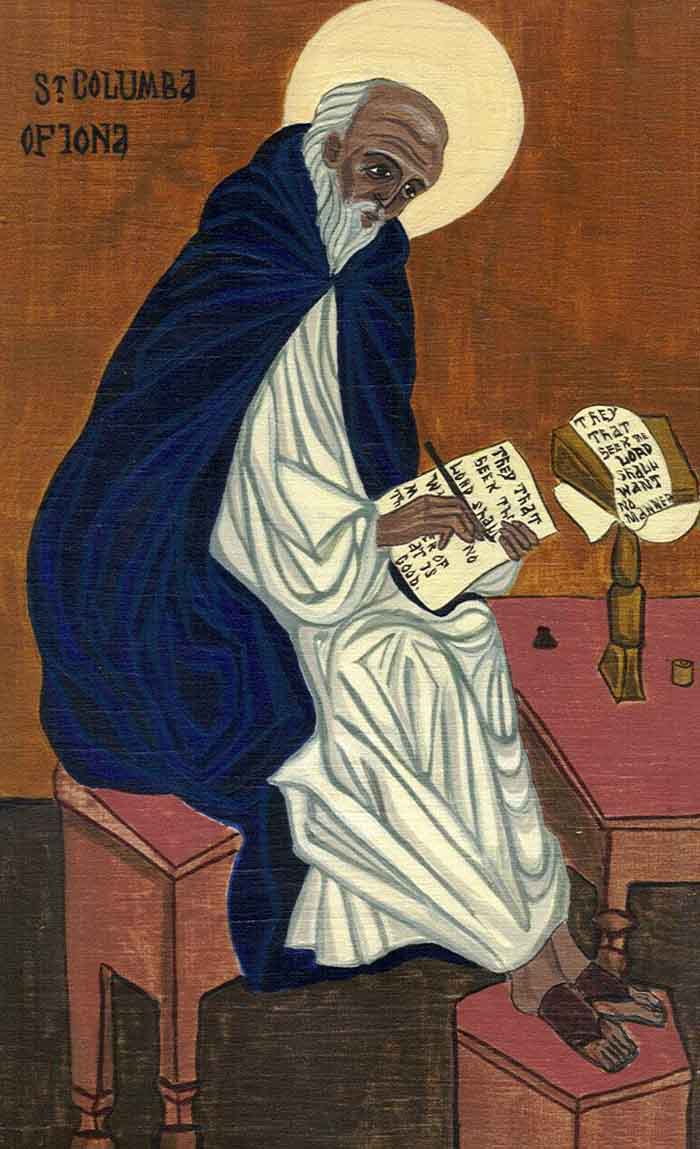+
.
This last week I returned yet again to Dr. Margaret Barker's The Hidden Tradition of the Kingdom of God -- another of her works deserving three cheers for the scholar. She concludes her work with a quote of Blessed John Henry Newman from the Fourth Volume of his Parochial and Plain Sermons. I was very taken with Dr. Barker's entire thesis, so this extended quote from Cardinal Newman seemed at first a bit of icing for the cake. But reading through and ruminating upon it I realised how well it grounded and summarised Dr. Barker's approach. Here is the quotation as used by Dr. Margaret Barker:
Once only in the year, yet once, does the world which we see show forth its hidden powers, and in a manner manifest itself. Then the leaves come out, and the blossoms on the fruit trees, and flowers; and the grass and corn spring up. There is a sudden rush and burst outwardly of that hidden life which God has lodged in the material world. Well, that shows you, as by a sample, what it can do at God's command, when He gives the word. This earth, which now buds forth in leaves and blossoms, will one day burst forth into a new world of light and glory, in which, we shall see Saints and Angels dwelling.
Who would think, except from his experience of former springs all through his life, who could conceive two or three months before, that it was possible that the face of nature, which then seemed so lifeless, should become so splendid and varied? How different is a tree, how different is a prospect, when leaves are on it and off it! How unlikely it would seem, before the event, that the dry and naked branches should suddenly be clothed with what is so bright and so refreshing! Yet in God's good time leaves come on the trees. The season may delay, but come it will at last. So it is with the coming of that Eternal Spring, for which all Christians are waiting. Come it will, though it delay; yet though it tarry, let us wait for it, 'because it will surely come, it will not tarry.' Therefore we say day by day, 'Thy kingdom come;' which means,—O Lord, show Thyself; manifest Thyself; Thou that sittest between the cherubim, show Thyself; stir up Thy strength and come and help us. (Dr. Barker's emphasis)
The earth that we see does not satisfy us; it is but a beginning; it is but a promise of something beyond it; even when it is gayest, with all its blossoms on, and shows most touchingly what lies hid in it, yet it is not enough. We know much more lies hid in it than we see. A world of Saints and Angels, a glorious world, the palace of God, the mountain of the Lord of Hosts, the heavenly Jerusalem, the throne of God and Christ, all these wonders, everlasting, all-precious, mysterious, and incomprehensible, lie hid in what we see.
What we see is the outward shell of an eternal kingdom; and on that kingdom we fix the eyes of our faith. Shine forth, O Lord, as when on Thy nativity Thine Angels visited the shepherds; let Thy glory blossom forth as bloom and foliage on the trees; change with Thy mighty power this visible world into that diviner world, which as yet we see not; destroy what we see, that it may pass and be transformed into what we believe.
Bright as is the sun, and the sky, and the clouds; green as are the leaves and the fields; sweet as is the singing of the birds; we know that they are not all, and we will not take up with a part for the whole. They proceed from a centre of love and goodness, which is God Himself; but they are not His fulness; they speak of heaven, but they are not heaven; they are but as stray beams and dim reflections of His Image; they are but crumbs from the table . . . .
We know that what we see is as a screen hiding from us God and Christ, and His Saints and Angels.
Bl. John Henry Newman
'The Invisible World'
Parochial and Plain Sermons
Vol.4, no. 13
+
















